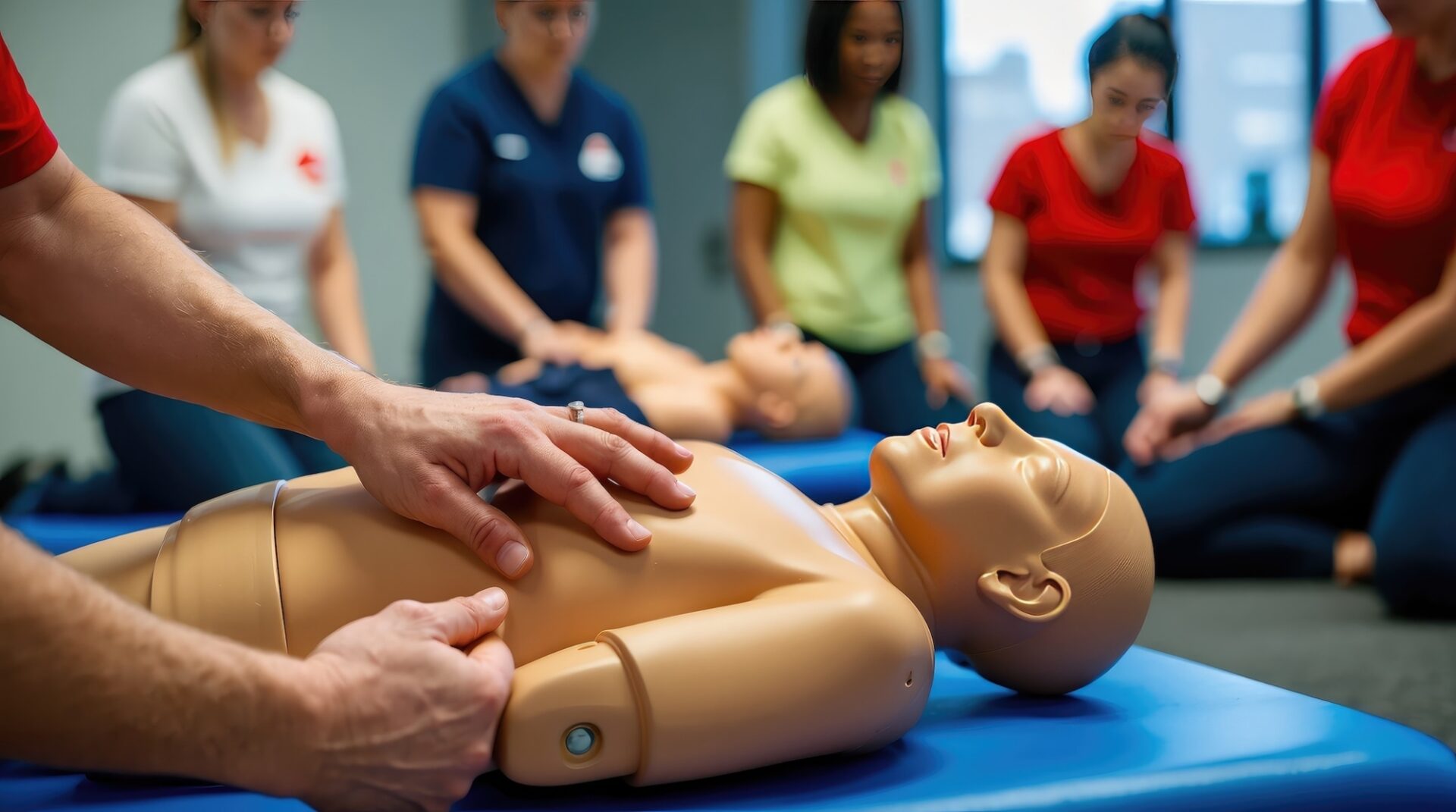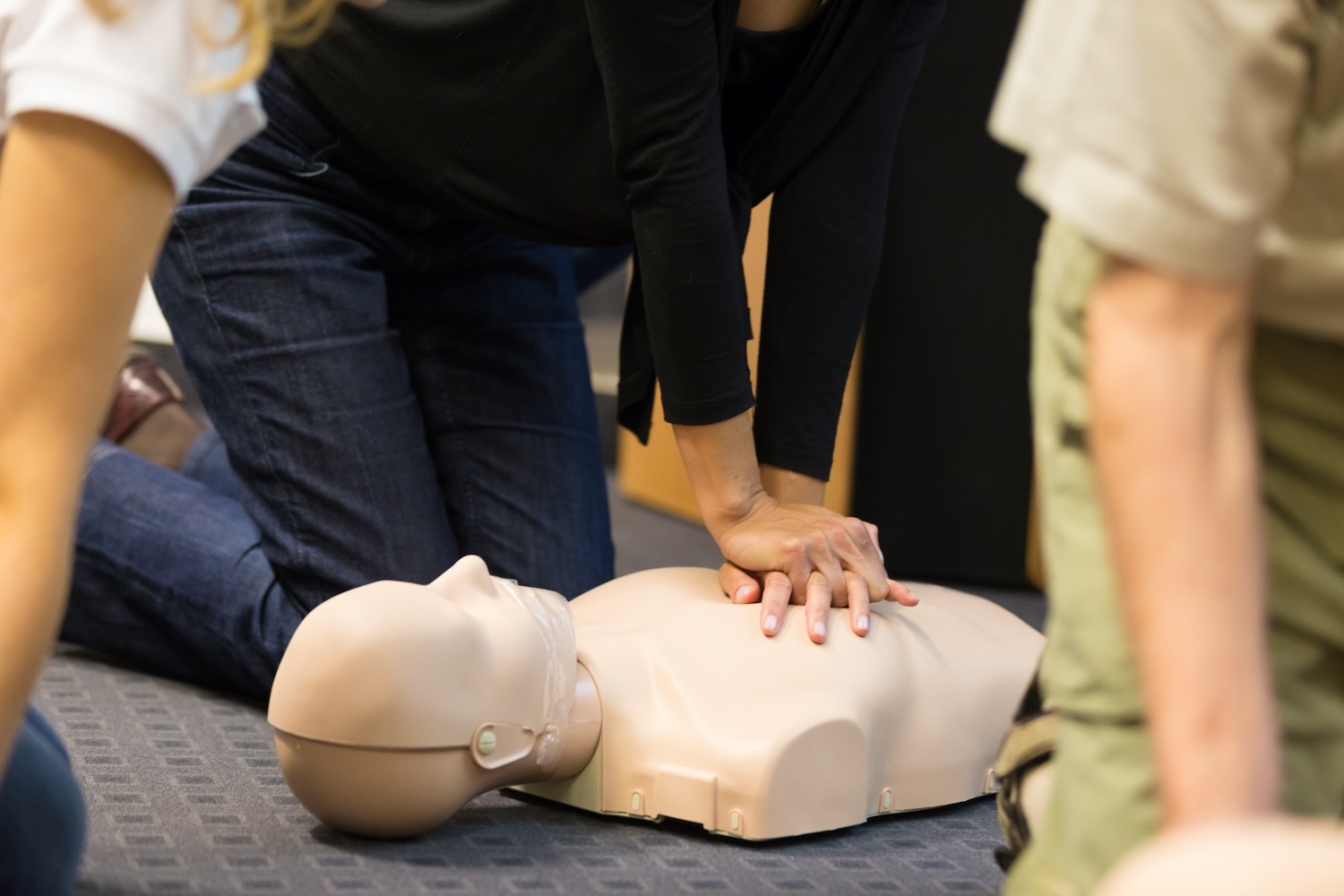When Do I Need to Renew My First Aid Certificate?
First aid knowledge saves lives — but only if it’s current. Whether you work in childcare, education, construction, or any other industry, understanding when and why to renew your first aid qualification is essential for both compliance and safety.
The Role of the Australian Resuscitation Council (ARC)
The Australian Resuscitation Council (ARC) sets the national guidelines for cardiopulmonary resuscitation (CPR) and first aid practices in Australia.
While the ARC does not mandate renewal periods, it recommends that:
- CPR skills (HLTAID009 Provide Cardiopulmonary Resuscitation) are refreshed every 12 months
- First Aid qualifications (HLTAID011 Provide First Aid, HLTAID012 Provide First Aid in an Education and Care Setting, etc.) are renewed every three years
These recommendations are based on evidence showing that CPR competence declines significantly within a year without practice. Regular refresher training ensures that first aiders maintain the confidence and muscle memory to respond quickly in an emergency.
The Role of Regulatory Authorities
While the ARC provides the clinical guidance, regulatory authorities set the mandatory training requirements for specific workplaces and industries. Here’s how these authorities apply renewal expectations:
Safe Work Australia
As the national work health and safety policy body, Safe Work Australia recommends that first aiders maintain currency by following the ARC’s guidelines. Individual states and territories enforce these expectations through their respective Work Health and Safety (WHS) regulators.
WorkSafe Victoria
Under Victorian WHS regulations, employers must ensure designated first aiders hold a current qualification. WorkSafe Victoria recognises ARC guidance, so refresher training every three years for first aid and annually for CPR is the expected minimum.
ACECQA (Australian Children’s Education & Care Quality Authority)
For the childcare and early learning sector, ACECQA mandates that educators maintain current HLTAID012 Provide First Aid in an Education and Care Setting.
This means:
- CPR updated every 12 months
- Full first aid and anaphylaxis/asthma components renewed every 3 years
Victorian Department of Education
Victorian schools must ensure staff who hold first aid responsibilities maintain valid certification aligned with ARC and WorkSafe expectations. The Department’s guidelines also emphasise the importance of annual CPR refreshers for all school-based first aiders.
Standard Renewal Periods for First Aid and Emergency Courses
| Course Code | Course Title | Typical Renewal Period | Notes |
|---|---|---|---|
| HLTAID009 | Provide Cardiopulmonary Resuscitation | Every 12 months | ARC recommends annual refreshers due to rapid skill decay |
| HLTAID011 | Provide First Aid | Every 3 years (CPR component every 12 months) | General workplace requirement recognised by WorkSafe |
| HLTAID012 | Provide First Aid in an Education and Care Setting | Every 3 years (CPR annually) | Required for ACECQA and early childhood services |
| HLTAID013 | Provide First Aid in Remote or Isolated Site | Every 3 years (CPR annually) | Common for outdoor, mining, or remote industries |
| HLTAID014 | Provide Advanced First Aid | Every 3 years (CPR annually) | Often required for first aid officers or supervisors |
| HLTAID015 | Provide Advanced Resuscitation and Oxygen Therapy | Every 12 months | Frequent updates required for use of oxygen and resuscitation equipment |
| 22578VIC | Course in First Aid Management of Anaphylaxis | Every 3 years (annual skills update recommended by ASCIA and DET) | Required in Victorian schools and childcare under Ministerial Order 706 |
| 22556VIC | Course in the Management of Asthma Risks and Emergencies in the Workplace | Every 3 years (annual review recommended by ACECQA and DET) | Mandatory for educators under the National Regulations |
Why Maintaining CPR Competency Matters
CPR is the most time-sensitive and life-critical element of first aid.
A person experiencing cardiac arrest has less than a 10% chance of survival without immediate CPR. Each minute of delay decreases survival chances by up to 10%.
Keeping your CPR training up to date ensures:
- You recognise cardiac arrest quickly
- You perform compressions at the correct rate and depth
- You know how to use an AED confidently
Without recent practice, even experienced first aiders can lose the rhythm, speed, or confidence needed in a real emergency.
What Happens If My First Aid Certificate Is Current, But My CPR Certificate Is Not?
This is a common situation. Many first aid qualifications, such as HLTAID011 Provide First Aid, include a CPR component. While the overall certificate remains valid for three years, your CPR competency (HLTAID009) must still be refreshed annually.
If your CPR certificate has lapsed but your first aid qualification is technically “in date,” you may be:
- Non-compliant with workplace or industry requirements (especially in schools, childcare, or high-risk industries)
- Unable to act as the designated first aider under WorkSafe expectations
- At risk of skill decay, meaning your response in an emergency may be less effective
In practice, most employers — including those in education, healthcare, and construction — require proof of current CPR certification in addition to your overall first aid qualification. This ensures that your lifesaving skills remain sharp and that the workplace meets legal obligations for safety preparedness.
Case Studies: Real-World Importance of Renewal
Childcare Worker – Maintaining ACECQA Compliance
Samantha works at a long day care centre in Melbourne. Her HLTAID012 qualification expired two months ago. During a routine audit, her service was flagged as non-compliant under ACECQA’s National Quality Standard (2.2.1).
The lapse meant she was temporarily removed from the first aid roster until she requalified — highlighting how expired training can affect both compliance and workplace operations.
Victorian School Staff Member – Student Safety at Risk
David, a physical education teacher, hadn’t refreshed his CPR since 2021. When a student collapsed on the sports field, he froze — unable to recall the compression-to-breath ratio. While another teacher successfully intervened, the incident led to an internal review and mandatory retraining for all staff.
This reinforces how annual CPR refreshers maintain readiness for real emergencies.
Construction Site First Aider – WorkSafe Obligations
Troy is a site supervisor whose first aid certificate expired six months ago. During a WorkSafe inspection, the site was issued a compliance notice for failing to maintain a current trained first aider.
The business had to arrange urgent re-certification and risked potential penalties. For high-risk industries, staying current isn’t just best practice — it’s a legal expectation.
What Happens If Your First Aid Certificate Has Expired?
If your certificate has passed its renewal date:
- You’re considered non-current — meaning you cannot act as a workplace first aider
- Your employer may be non-compliant with workplace health and safety laws
- If you are paid a first aid allowance that may be discontinued
Most Training Organisations, including Australian Pacific Training Solutions, recommend renewing before expiry to avoid gaps in certification and ensure continuous compliance. Renew your certificate with one of our first aid courses today!
Keep Your Skills Current — and Your Workplace Compliant
Renewing your first aid training ensures you’re prepared to respond when it matters most. It also helps your organisation remain compliant with industry and regulatory standards.
At Australian Pacific Training Solutions, we deliver nationally recognised first aid courses that meet ARC, WorkSafe, ACECQA, and Department of Education requirements.
Stay current. Stay confident.
Enrol in your next first aid course with Australian Pacific Training Solutions, or contact us to arrange an on-site group booking for your workplace.



